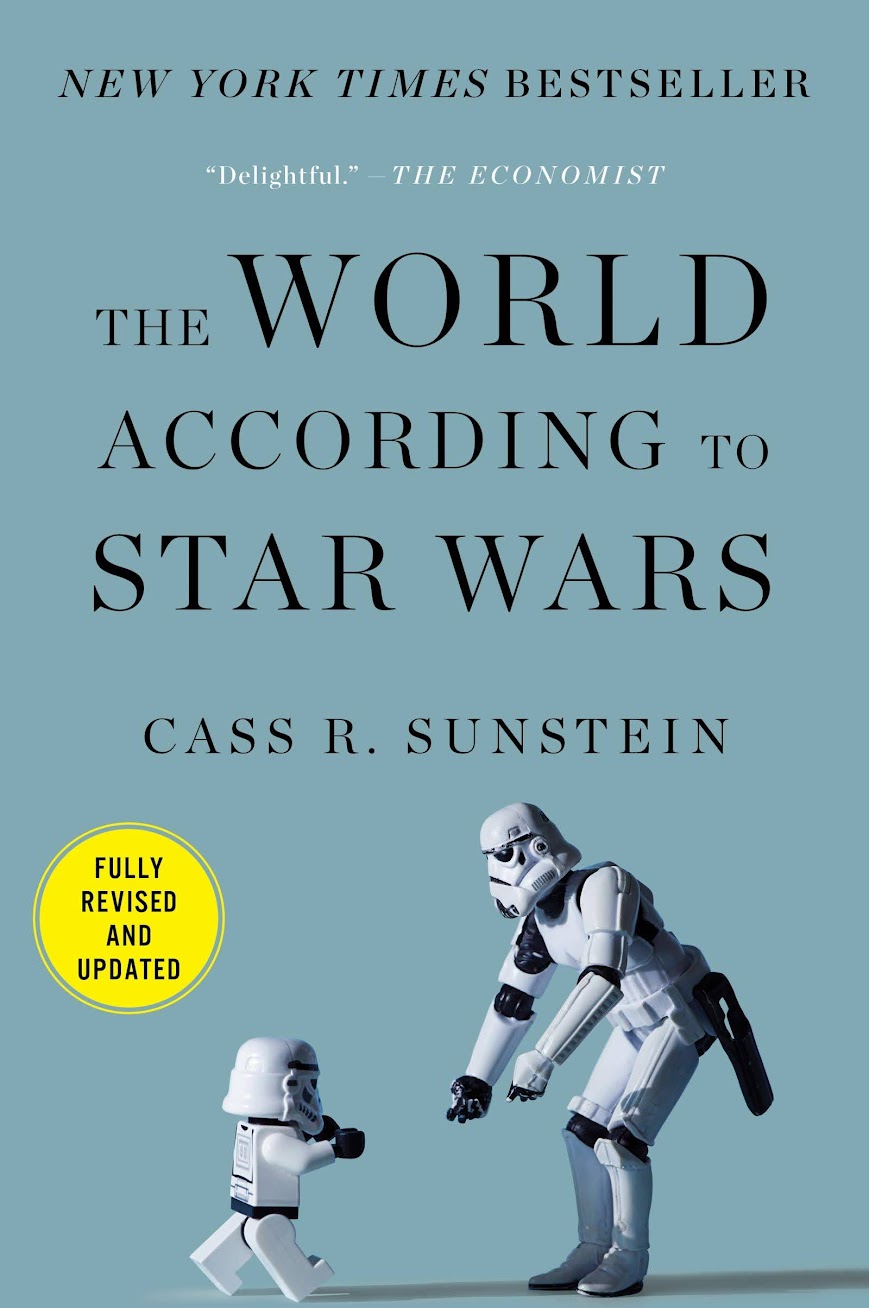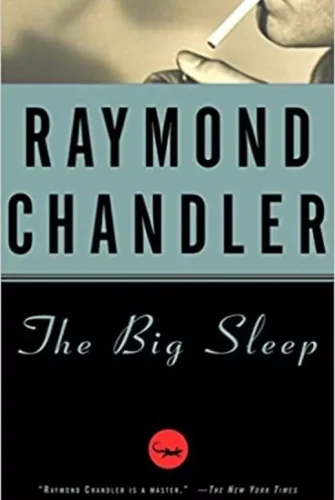The Universe As Outlined by Star Wars (2016) uncovers the numerous life lessons to be gleaned from George Lucas’s Star Wars films. Uncover what popular science fiction can inform us about ourselves, what Star Wars conveys about the politics of popularity, and how we interpret movies and inject our favorite narratives with our own concepts.

- What’s the benefit for me? Grasp the universe through Star Wars
- Investigating how Star Wars came into being debunks a misconception about the creative process
- The appeal of Star Wars is a question of timing and the aspiration to be part of the phenomenon
- Star Wars continues to captivate individuals by presenting numerous interpretations
- Additionally, Star Wars captivates individuals by mirroring the realities of political dynamics and insurgencies
- Ultimately, the most significant takeaway from Star Wars is the freedom of choice
- Concluding Remarks
- About the author
- Review
What’s the benefit for me? Grasp the universe through Star Wars
Regardless of whether you’ve viewed the Star Wars movies, you have likely heard of them, and you are probably acquainted with some of the franchise’s characters and artifacts: the diminutive Jedi master Yoda and his unique way of speaking; lightsabers with their distinct sound; the menacing Darth Vader with his resonating breath and renowned line, “I am your father.” These are merely a few of the most well-known allusions. There are many more — some are utilized as setups for humor, while others are poised to be quoted by dedicated fans.
However, it’s all purely fictional, right? And what can fiction genuinely teach us about the world we inhabit?
Well, it appears that fiction can actually teach us a considerable amount. So, let’s observe precisely what we can discover by embarking on a journey through time and space — by voyaging back to a distant past, in a galaxy far, far away.
Investigating how Star Wars came into being debunks a misconception about the creative process
Star Wars has become so influential and emblematic — despite a science fiction realm teeming with classic characters and renowned lines — that at times, it appears as though it has existed forever.
Yet, there was once a period when concepts like Death Stars and Wookiees were merely vague musings in the mind of their originator, George Lucas.
Indeed, during the early 1970s when Lucas initially broached the notion of creating a Star Wars film, these ideas were extremely nebulous: the protagonists would be extraterrestrials, and the antagonists would be humans.
While that is a captivating starting point, it bears minimal resemblance to the movie we recognize today and the all-human triumvirate of central heroic figures: Luke, Leia, and Han Solo.
As with many films, the initial Star Wars movie, A New Hope, underwent numerous revisions before it reached the screen. Lucas eventually authored four diverse drafts before he settled on the version that proceeded to become the cherished movie we know today.
And that was only one movie. It certainly did not entail a detailed plotline that would span over two trilogies with a third installment still in the works.
Even the legendary plot twists introduced in subsequent movies, such as Darth Vader being revealed as Luke’s father or Luke and Leia being siblings, did not exist from the outset.
Several years later, when conversing with the scriptwriters of the television series Lost, Lucas disclosed that he was uncertain of the trajectory when the initial movie premiered.
Indeed, those disclosures that appear fundamental to the mythos of Star Wars were all the outcome of brainstorming sessions between Lucas and his writing team.
It’s a prevalent misbelief that renowned creators like Lucas bring to life worlds that are entirely developed and meticulously planned ahead of time; we can designate this as the myth of creative foresight.
However, that’s not the genuine nature of creativity. The creative procedure revolves around being receptive and unsure and seizing on concepts that arise along the path.
The appeal of Star Wars is a question of timing and the aspiration to be part of the phenomenon
Given how incredibly popular Star Wars ultimately became, you might assume that the creators were aware that they had success on their hands. Nevertheless, this would be yet another misconception. In reality, most individuals engaged thought it was destined to fail.
Nonetheless, the first Star Wars film had two immense factors operating in its favor: timing and serendipity.
In 1977, the ambiance in the United States was rather bleak: Individuals were still recuperating from the assassinations of Malcolm X and Martin Luther King, Jr., as well as two Kennedys. Furthermore, the economy was in a downturn, terrorism was on the rise, and the Cold War was still instigating tension.
What spectators required was a grand, exhilarating piece of art that would unite people in a spirit of camaraderie.
And that’s precisely what Star Wars accomplished. The massive spacecraft, amusing droids, and lightsaber duels permitted individuals to briefly forget their troubles and relish a bit of amusement.
Moreover, the heroes and villains were unequivocal and well-defined, hence, unlike the present political climate, everyone could readily concur about who the protagonists and antagonists were.
Star Wars appealed to virtually everyone, and this was pivotal to its enduring triumph.
There exists a human inclination to appreciate what others appreciate since such consensus enables us to feel connected to others and relish a mutual experience.
This can give rise to what’s termed a popularity cascade — where something commences being exceedingly popular and escalates in popularity as people desire to be a part of the trend.
It can also be labeled as the network effect: the more individuals utilize something, the more valuable it turns out to be. Facebook is a prime illustration; the primary reason individuals utilize Facebook is due to the multitude of other individuals using Facebook.
Star Wars continues to experience a cascade of popularity at present: Upon the release of the initial trailer for Star Wars: The Force Awakens, it broke records by being viewed 88 million times within 24 hours. Clearly, people still yearned to be part of the phenomenon.
Star Wars continues to captivate individuals by presenting numerous interpretations
When a movie is watched as frequently as the Star Wars films have been, it can spark a multitude of distinct viewpoints. And these varied interpretations can even arouse a desire to revisit the films.
Some individuals interpret Star Wars as a Christian allegory about love, sacrifice, and redemption.
Above all, one of the central characters is exceedingly reminiscent of Christ: Anakin Skywalker was born to a virginal mother, and by ultimately transforming into Darth Vader, he personifies and surpasses the transgressions of others before undergoing a symbolic demise to safeguard his children.
Moreover, the Dark Side of the Force can be seen as the metaphorical apple of temptation akin to Satan. It entices an innocent Anakin with the pledge of eternal life and the ability to rescue his loved ones.
Alternatively, Star Wars can be interpreted as being about Buddhism.
After all, Yoda seems somewhat akin to Buddha, and his teachings regarding how to harness the Power to evolve into a Jedi underscore disengagement and awareness in a manner consistent with Buddhist teachings.
As an illustration, Yoda advises Luke: “Anxiety begets wrath. Wrath begets animosity. Animosity begets suffering.”
By comparison, consider Buddha’s teachings, stating: “Suffering exists. The cause of suffering exists. There can be an end to suffering. The eightfold path leads to the cessation of suffering.”
Remarkably, there is a publication addressing this subject titled The Dharma of Star Wars, penned by Matthew Bortolin, a disciple of the esteemed Buddhist instructor Thich Nhat Hanh.
There are also more cynical interpretations of Star Wars.
One articulates that the central theme revolves around order and chaos. This perspective challenges the conventional perception of virtuous Jedis opposing the malevolent Empire by posing a thought-provoking question: Could the galaxy have been in a better state under Emperor Palpatine’s rule?
If one were to view the Emperor as a comparably charitable authoritarian figure, then it is the Jedis and the Rebel Alliance who are instigating all the turmoil and violence.
Additionally, Star Wars captivates individuals by mirroring the realities of political dynamics and insurgencies
Star Wars captivates by providing insights into real-world scenarios.
For instance, the introductory text of Star Wars: Episode II – Attack of the Clones reveals the Galactic Senate’s turmoil as numerous solar systems are on the brink of seceding from the Republic; consequently, the Jedi struggle to maintain peace.
Once again, we witness the ripple effect – but this time, instead of a wave of popularity, it results in rebellion.
In Attack of the Clones, the distant solar systems within the galaxy do not act autonomously within the senate. Instead, once a few depart from the Republic, others follow suit, leading to a domino effect of departures culminating in a full-fledged political secession.
This puts the Jedi in a state of overwhelm, fostering a general atmosphere of rebellion that further fuels disorder.
The cascade effect is merely one way in which the Star Wars realm mirrors our own world.
Consider, for example, the 2008 presidential campaign. During his run, Barack Obama gained traction from a surge of popularity that attracted increasing donors and voters.
In contrast, one could examine the more recent 2015 campaign of Republican candidate Scott Walker.
Once deemed a frontrunner for the Republican Party, Walker’s campaign suffered after being tagged as a failure. Strikingly, this notion quickly caught on, resulting in decreased financial support as other donors followed suit. Subsequently, it became challenging to raise funds, leading to the collapse of his campaign.
The cascade effect underscores the significance of primary elections in US politics; it is during this period that a candidate’s trajectory commences, for better or for worse.
Ultimately, the most significant takeaway from Star Wars is the freedom of choice
While Star Wars can be interpreted in various ways, one cannot deny that it was crafted by an individual hailing from the United States – a nation renowned as “the land of the free and the home of the brave.”
George Lucas conceived Star Wars in the 1970s, amidst the Cold War, the aftermath of the Vietnam War, and President Nixon’s Watergate scandal.
Considering these elements, it becomes apparent that Star Wars delves into the sacrifices entailed by freedom.
During the 1970s, numerous Americans regarded the Soviet Union and its satellite nations in Eastern Europe as a form of evil empire; conversely, they perceived the United States as a symbol of liberty.
However, with the atrocities of Vietnam and President Nixon’s resignation following the Watergate scandal in 1974, Americans acknowledged the darker facets of their establishments.
A delicate equilibrium between the democratic and liberty “forces” became evident. Just like his contemporaries, George Lucas witnessed firsthand the repercussions of yielding to the Dark Side.
Hence, while Star Wars celebrates political autonomy, it also acknowledges the dichotomy of good and evil within each individual.
The struggle for political freedom is not the sole focus; the characters in Star Wars also confront arduous personal decisions.
Many of them must opt to leave their homes and instead of aiding their kin in the family enterprise, venture into the universe to fight for righteousness.
Frequently, the characters face a crossroads between the easy way out and the more demanding yet fulfilling path. This liberation of choice often comes at a steep cost.
For instance, young Anakin Skywalker elects to depart from his mother to train as a Jedi. However, not only does he never see his mother alive again, he must ultimately eliminate his master and mentor to preserve the galaxy!
Concluding Remarks
The primary message in this volume:
No individual possesses absolute clarity in life or creative endeavors in advance. Most individuals are navigating through it in real time. Once you generate something and release it into the world, its reception, and interpretations are beyond your control. Should something achieve immense popularity, it is often due to an initial wave of acclaim propelling it into a desirable entity for all. While this phenomenon extends to politics as well – in both advantageous and detrimental ways – Star Wars fundamentally reminds us of the tremendous value we possess in our freedom of choice.
About the author
Cass R. Sunstein is a lecturer at Harvard University and the originator of the institution’s Program on Behavioral Economics and Public Policy. He has served in the White House Office of Information and Regulatory Affairs and as a member of the President’s Review Group on Intelligence and Communications Technologies. His repertoire includes Nudge: Improving Decisions about Health, Wealth, and Happiness and Simpler: The Future of Government.
Review
“The World According to Star Wars” offers a stimulating and perceptive exploration of the cultural and societal influence stemming from the Star Wars franchise. Crafted by Cass R. Sunstein, a distinguished legal scholar and author, this publication delves into the extensive and ever-evolving universe of Star Wars to scrutinize its pertinence in our tangible domain.
Sunstein employs Star Wars as a perspective to delve into a broad array of subjects, encompassing politics, philosophy, psychology, and human conduct. He posits that Star Wars has morphed into a contemporary mythology, molding our principles, convictions, and even our political ideologies. He assesses the enduring series’ popularity factors, dissecting the characters, themes, and ethical principles resonating with enthusiasts across generations.
An exemplary facet of the volume is the exploration of the “Star Wars effect” on various societal facets. Sunstein delineates how Star Wars has impacted political discussions, legal rulings, and even our comprehension of behavioral economics. He contends that the franchise’s triumph lies in its capacity to tap into our fundamental instincts and aspirations, offering an ageless narrative that speaks to the human essence.
The author also provides a distinctive outlook on George Lucas, the mastermind behind Star Wars, and his odyssey in materializing this grand saga. He scrutinizes the hurdles Lucas encountered, the risks undertaken, and the repercussions of his creation on the entertainment sector and popular culture.
To sum up, “The World According to Star Wars” is an enthralling expedition into the profound impact that this iconic franchise has wielded on our culture and society. Cass R. Sunstein’s aptitude to link the fictional galaxy far, far away to our daily lives underscores the enduring potency and relevance of Star Wars.


